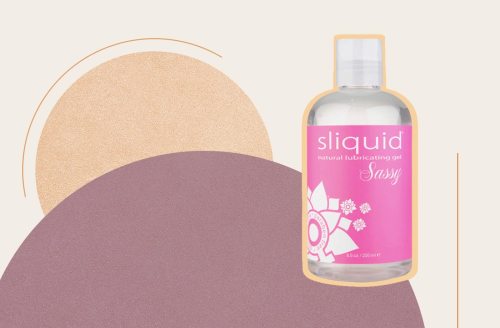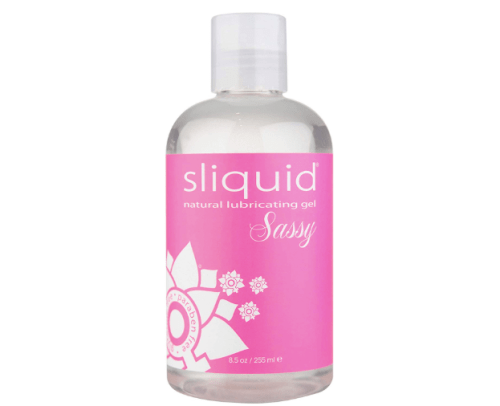Our editors independently select these products. Making a purchase through our links may earn Well+Good a commission
For the unlubricated—er, uninitiated—there are three main types of lubricants available to level up your pleasure time: silicone-based, oil-based, and water-based. Each comes with its own list of pros and cons, or dos and don’ts. After doing the research and trying all the options safely, though, I can tell you with confidence that water-based reigns supreme as most versatile, and better yet, I can recommend the best water-based lube available for you to try.
First, here’s why other options don’t stack up comparison: Silicone-based options are slippery, long-lasting, barrier-safe (meaning compliant with safe-sex tools like condoms and dental dams), and are known as the best type for anal play. But, silicone-based lubricants can’t be used with silicone-based sex toys (which is a material most body-safe vibrators use) because the silicone sticks to itself, which can compromise the shape, texture, or feel of the toy. Oil-based lubes are longer-lasting than silicone options, amazing for full-body massages, and compatible with all types of sex toys. But even just 60 seconds of exposure to oil can degrade latex barriers, a crucial quality to uphold to protect against STI transmission and unplanned pregnancy. Furthermore, because certain oil-based lubes can interact with the vaginal ecosystem and lead to yeast infections or bacterial vaginosis, they are not recommended for vaginally penetrative sex.
“You can use [water-based lube] with any sex toy material or barrier protection.”—sex educator Lisa Finn
Finally, there’s water-based lube, which Lisa Finn, sex educator with sex-toy store Babeland calls The Universal Lube, and for good reason. “You can use it with any sex-toy material or barrier protection,” she says. Still, it certainly isn’t perfect; because it’s made of water, you absorb in, which means you need to reapply it often. And it’s not ideal for anal play because that area isn’t self-lubricating.
After weighing pros and cons of each type, I’ve resolved that I have no interest in running through a list of lube-related dos and don’ts every time I reach into my bedside drawer. That’s why water-based is always my lubricant of choice, but identifying the best water-based lube still required some (pretty fun) trial and error.
Not all water-based lubricants are created equally
Many options contain ingredients like glycerin and alcohol, which can irritate certain people. “Glycerin is a sugar, and if it gets inside the vagina, it can lead to a yeast infection in folks who are prone to them,” says Finn. And while lubricant brands typically add alcohol to products to make them longer-lasting, that alcohol can sometimes dry out and irritate the lining of the vagina or anus, she says. (I, for one, have lost count of the number of times I’ve tried a new lubricant, only to have it land me on a dose of fluconazole, a yeast-infection medication.)
But, never one to give up easily, I did eventually find the best water-based lube available to keep me pleasured and irritation-free.
Introducing: The best water-based lube available
My unofficial tally says I’ve used the Sliquid Sassy at least 200 times, both alone and with a partner. Never once has it lead to irritation or infection. And Finn backs up my selection. “It’s generally a really good bet for people with sensitive vulvas because it’s glycerin- and paraben-free,” she says.
Shop now: Sliquid Sassy lubricant, $12
While keeping me irritation free is reason enough to devote myself fully and completely to Sliquid Sassy, that’s not the only reason I love using the product. Thicker than most water-based lubricants, it has a gel-like consistency that’s similar to a silicone-based product. I’d even go so far as to describe it as “cushiony,” whereas many water-based lubes are best described as watery. In effect, this can lead to fewer needs for reapplication, and, thus, fewer reasons to disrupt whatever sexy flow in which you may find yourself.
Now that you’ve got the lowdown on the the best water-based lubricant, here’s how foreplay can improve your sex life. And here’s what to do if sex is painful for you.
Sign Up for Our Daily Newsletter
Get all the latest in wellness, trends, food, fitness, beauty, and more delivered right to your inbox.
Got it, you've been added to our email list.












